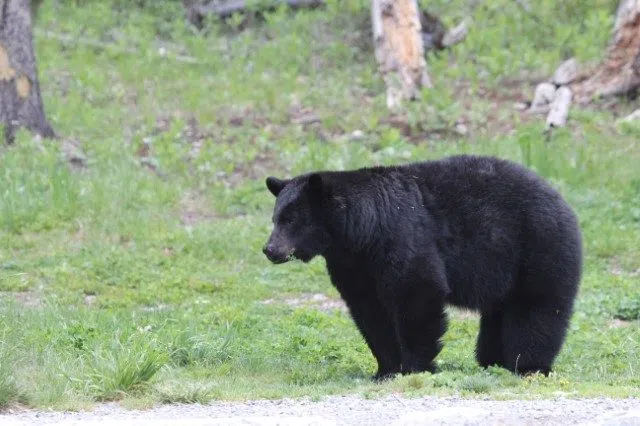The province is reminding residents to be aware of bears while enjoying nature as summer nears its close.
Keeping distance and refraining from feeding bears are the best ways people are advised to enjoy the outdoors into the fall without any bear-related incidents.
Bears in the province are already planning for winter, said Ministry of Environment wildlife biologist Matthew Tokaruk. That means they’re foraging to fatten up for hibernation.
The phase is called hyperphagia and leads bears to eat for up to 20 hours each day.
“During this time of year, it is not unusual for bears to consume 20,000 calories per day … They may eat 20 to 30 pounds of berries per day, often increasing their body weight by 35 per cent through late summer and fall,” Tokaruk said.
Being so focused on eating may distract bears from nearby people until they’re close. Those who encounter a bear while out and about in the coming months are advised to keep their distance and not to try scaring the animal away, as they usually move on without incident.
Tokaruk says hyperphagia lasts well into the fall.
“As humans, we can reduce human-bear conflicts by being extremely careful around them. It is also important to take the necessary safety precautions in areas where bear encounters are more frequent.”
Black bears are intelligent but listen to their stomachs. They will leave areas where they don’t find food, but when humans become associated with food sources to bears, it can become a risk to safety.
Bears that have been fed by people will lose their natural fear of humans and often, as a result, have to be destroyed. New regulations that were introduced in the spring make it illegal to feed bears, wolves, cougars and coyotes. Visitors can also be fined for failing to manage food and garbage while camping.
These rules do not apply to the use of bait for licensed hunting and trapping, conducting agricultural activities or operating licensed landfills.
Any aggressive bear encounters or incidents involving bears where public safety could be at risk should be reported to the Turn in Poachers and Polluters (TIPP) line by calling 1-800-667-7561.











